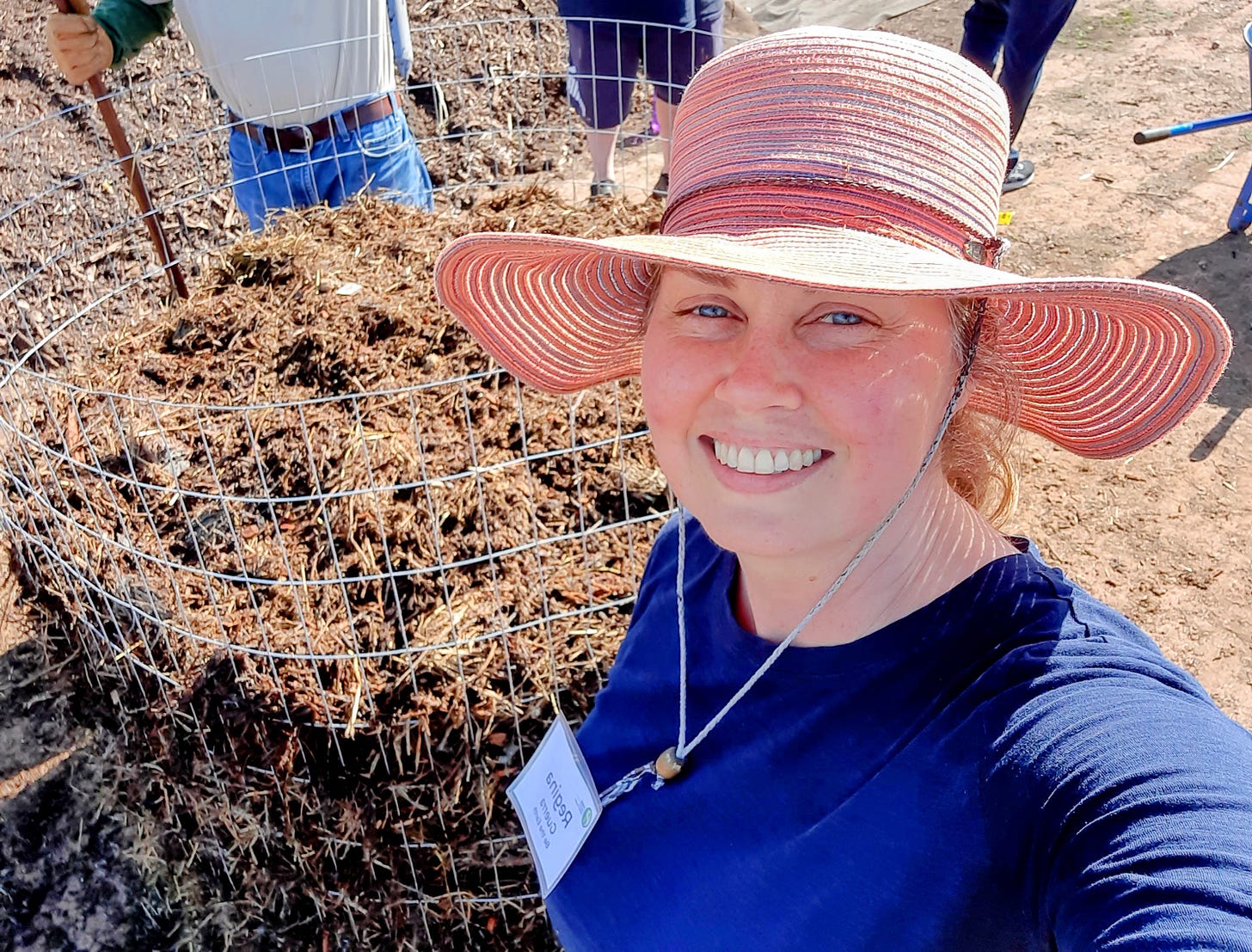Who wants to 'Be The Earth'?
A talk at the Sebastopol Library on Thursday will discuss the newly legal option of having bodies composted after death
For years, what to make of one’s body after death has been a binary decision. You are buried or you are cremated. Some have passionate opinions one way or the other. Some could care less.
But what if there was another option—a choice that was better for the environment, and, perhaps, more aligned with your spirituality?
In the few states in which it has been authorized, that option is to have your body rapidly decomposed through a process technically known as “Natural Organic Reduction,” or, colloquially, as body composting.
While body composting has been approved in California, it will not be a real option until at least 2027. In the meantime, Regina Guerra, a math teacher by trade, has started the Sonoma County-based company, Be The Earth, which seeks to educate locals on body composting and, in a couple years, offer the service in partnership with regional funeral homes.
Guerra had already become obsessed with eco-conscious “deathcare” when she was thrilled by the news that body composting was being legalized in Washington state. She would go on to receive a “Natural Organic Reduction Operations Certification” from the Cremation Association of North America before starting her business.
“I felt like when people looked at their options for end of life care, it wasn’t meeting their desires,” Guerra recalls.
Rather than leaving one’s body out in the wild to decompose entirely over a matter of years, as happens naturally to the corpses of animals and humans that are left out in the wilderness, new technology developed by existing companies, such as “Recompose” in Washington, can speed up and stabilize the process.

The body is placed in a temperature and oxygen-controlled vessel—sort of like a tanning bed—and packed with wood chips, alfalfa and straw. Over the course of several weeks, microbes change on the molecular level, resulting in the formation of a nutrient-dense soil.
Once the two-month process is completed, the remains are given to loved ones or to land restoration organizations.
“You can be a part of so many different things,” Guerra says. “Some of you could be in the forest; some of you could be in the garden; some of you could be fixing damaged land from wildfires.”
Unlike cremation, which emits carbon dioxide into the atmosphere, or burial, which takes up land and pollutes the soil, body composting actually helps the environment. Through sequestration, it can help soil capture greenhouse gases which would otherwise fester in the atmosphere.
Guerra, for example, hopes that in her “second life on earth,” her remains are used to grow a lavender bush to feed bees.
“When I'm in the market for anything, I'm always looking at it through the lens of climate change,” Guerra said. “People are interested in choosing something that resonates with with their values.”
Because the body composting process takes significantly longer than either cremation or burial, it can also help loved ones take their time grieving.
“Grieving doesn't end in hours or days or weeks,” Guerra said. “There's the initial shock and things that just need to be done. So you begin the composting process at that point. Then two months later, you have a chance to catch your breath. You've dealt with some of the logistical things that have to happen, and you have the bandwidth to think about a memorial.”
In the end, the composted remains amount to about a cubic yard, which means there is plenty to distribute among family and friends who can use it to grow ornamental plants or keep in a container of their own.
Though some people don’t like getting into the weeds about something as wretched as death, Guerra welcomes the discussion. She’ll be at the Sebastopol Library this Thursday from 4 pm to 5 p.m. to give a talk on body composting as part of North Bay Zero Waste Week.
“You’ll notice my logo is a tree,” Guerra said. “Everyone I talk to wants to be a tree….You literally could be the Earth.”
Guerra is also interested in educating young people, who may be more open to alternative deathcare options, along with pet-owners.
“For a lot of people, pets are a member of the family, and they don't have great options either,” Guerra said.
Over the next couple of years, Guerra will be creating her own equipment and system as the process is legitimized in the state. Then she will try to partner with local funeral homes to provide the entire package of arrangements.
“Your energy is never really destroyed,” Guerra said. “It's just transformed. It is a privilege to walk the earth in a body, but when that is over—and that's part of the deal of being alive, it must end—you could actually, in the next stage, be so much more.”



I wish the article had given a link to her company. I would like to reserve this service.
It'd be interesting to know the cost comparison to traditional after-death care of a body.